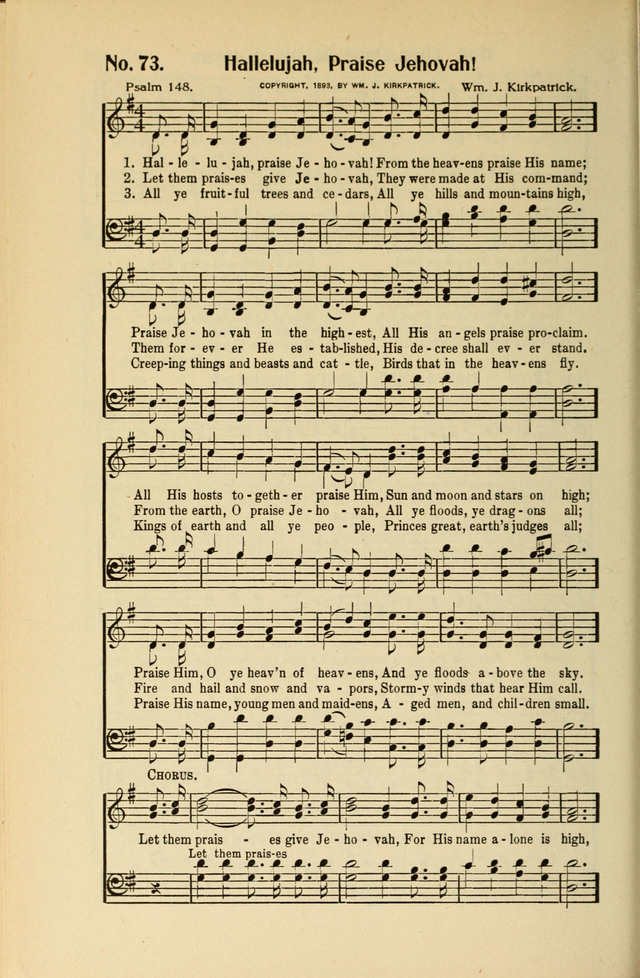Blog
Jesus Washing Feet
Thursday, May 07, 2020
The Bible contains many truly revolutionary ideas, but of them all the strangest may be the concept that the greatest should be the servant. This was alien to the people of Jesus’ day. Back then, people uniformly believed that the greatest should be. . . the greatest. Even today, 2000 years after Jesus’ ministry, in a country in which most people claim to be Christians, most people consistently put their own interests ahead of the interests of others.
This year, our theme is “Living for Jesus”, which is why Clay and I have been doing so much preaching, teaching, and writing about Jesus. If we truly want to live for the Lord, though, that means that we cannot be living for ourselves. If we want to eradicate the disease of selfishness from our lives, only Christ can show us the way. With this in mind, then, let’s turn to an episode from the final evening of His ministry. Let’s consider what we can learn from Jesus washing feet.
We’re going to spend most of our time this morning in John 13, and the first section of the foot-washing story is about JESUS’ MOTIVATIONS. Let’s read from John 13:1-5. The first thing that we see here is that Jesus acted out of love. Washing feet was usually the responsibility of the lowest-ranking slave of a household, but here, the Son of God on earth lowers Himself to do the task. Why? For the same reason that the Son of God came to earth in the first place—His love for every member of the human race.
Even today, love does not exalt itself. Love does not boast. Love does not insist on getting its own way. Instead, love serves. If we are like Jesus, we too will serve others, even in the most humble ways possible. It’s not demeaning for a Christian to bring a meal to somebody, clean their house, mow their lawn, or even scrub their toilet. Instead, when we act from love, we make even the lowest task noble.
Second, we see that Jesus acted because He knew who He was. He came from God, and He was going back to God. Washing the disciples’ feet didn’t change His value or His worth. Today, I think the people often refuse to be humble and serve because they’re afraid of losing who they are. They’re worried that if they give in to somebody else, that will lessen or diminish them.
That might be true for people in the world, but it’s not true for Christians. Like Jesus, we’re children of the King. Our lives are hidden in Him. So long as we remain righteous, there is nothing we can do or that anyone can do to us that will alter that truth. If I don’t insist on my own way, guess what? I still have an eternal inheritance waiting for me that makes any earthly squabble look insignificant. Jesus has given us everything, and that frees us to serve like Him.
In the second section of this story, PETER MISSES THE POINT. Look at John 13:6-11. When Jesus gets around to Peter with His basin and towel, Peter pitches a fit. Then, when Jesus explains to him that anyone who doesn’t let Jesus serve them isn’t Jesus’ disciple, Peter goes to the other extreme. He sees what Jesus is doing, but he doesn’t see the lesson.
In this, I think there are two lessons for us. First, we need to learn to let others serve us. Many Christians, myself certainly included, have real trouble with this. We will be first in line to help somebody else, but when the time comes to be helped ourselves, we make that as hard for other Christians as possible. I know sisters in Christ who would haul themselves up out of their deathbed and crawl around the kitchen making a meal rather than letting themselves be put on a meal train!
Brethren, this is something we need to work on. First, when we don’t allow others to serve us, we are denying them an opportunity to imitate Christ, and that’s a cruel thing to do to a disciple. Second, we need to be aware of the seductive illusion of self-reliance. Who are we to think that we don’t need help from anybody? Deep down, do we believe that we ought to be able to manage our sin problem on our own too? Fundamentally, being a Christian means being honest and admitting we can’t. When others want to help us, we have to be honest about our need for that too.
Second, notice that Peter also goes astray here in wanting to turn Jesus’ service into a ritual. He wanted Jesus to wash all of him, even though only his feet were dirty. Jesus refuses because there wouldn’t be any point to that.
So too, we need to be careful about turning Jesus’ actions here into a ritual. There are, of course, religious groups who engage in ritual foot-washing. However, they’re missing the point just like Peter did. It’s not serving anybody to go around with a basin and wash a bunch of clean feet! This is a text about meeting needs, not going through the motions, and we need to keep our focus on that.
Finally, we see JESUS’ APPLICATION. It appears in John 13:12-16. The first thing to notice here is His call for His apostles, and indeed for us, to imitate Him. This is one of the places, I think, where it really helps us to look at the other gospels. John doesn’t tell the story, but according to Luke 22, during the Last Supper, the apostles returned to one of their favorite pastimes—arguing about who was the greatest. One can well imagine the argument raging until Jesus, who is greater than all of them, rises from the table without a word and does something for them that none of them would have lowered themselves to do.
Hopefully, we usually have the good sense not to argue that we’re the greatest, but all of us struggle with that attitude from time to time. We think that other Christians ought to listen to our opinions. We think that things ought to be done in the church according to our preferences. We might not say that we are the greatest, but maybe we want to be treated like it.
Jesus’ example here shows how foolish that is. He really was the greatest, but He served like the lowliest. If the Lord Himself didn’t insist on His place, that doesn’t leave much room for any of the rest of us to do so, does it?
That’s where the power of this story lies. It’s not a call for us to scrub feet that don’t need scrubbing, and then to go on putting ourselves first. It’s a call for us to adopt the spirit of our foot-washing Lord. If there are feet that need washing, we’ll wash them. If there are toilets that need plunging, we’ll plunge them. For the disciple of Jesus, no act of service is too low, because we know that the lowliest service makes us more like Him.
Church Growth or Kingdom Growth?
Tuesday, May 05, 2020
As was the case for many Christians, when I was growing up, I was taught that the kingdom of heaven/the kingdom of God was the church. When I got older, I learned (first and most notably from a sermon that David Maravilla preached in Columbia, MO nearly 25 years ago now) that the truth is more nuanced. It’s better to define the kingdom as the rule or dominion of God. When we do so, many of Jesus’ teachings about the kingdom take on a deeper meaning.
This is the case in Matthew 13:31-33. In this text, Jesus compares the kingdom to two things: a mustard seed and leaven. The “mustard seed” parable is very churchy. The church starts out little and gets big. Its growth is obvious to all.
However, the church doesn’t fit quite so neatly into the parable of the leaven. In that parable, the kingdom is invisible and exerts an invisible influence that only can be detected indirectly. Only when we understand the kingdom in a broader sense does this begin to make sense. Sometimes, the growth of God’s dominion in the human heart is not obvious at all. You can only see it by the changes it produces in the lives of the converted.
In our increasingly secular age, there is a great emphasis on church growth. Americans love things that can be measured and counted, so to us, it seems reasonable that the best measure of the health of a church is the increasing numbers of those in attendance on Sunday morning. There is truth to this—after all, the mustard seed is supposed to grow and become a tree.
However, we need to pay as much attention to the invisible growth of the kingdom too. Many times, brethren take this kind of growth for granted. The church has assembled, its members have heard the word, so perforce they must have been edified, right?
Not necessarily. As the Lord points out in the parable, inward change begets outward change. If Christians aren’t living differently than they were five years ago, or ten years ago, they have not given more of their hearts over to God’s dominion either. Church cliché to the contrary, they have not, in fact, been built up. This is a dismayingly common problem. Though we love to bemoan the difficulties of evangelism, true edification is every bit as difficult.
In our work, then, we must be concerned not merely with church growth, but with kingdom growth. The goal of our assemblies must be to increase the dominion of God in the heart of every member through exposure to the gospel, and every element of our assemblies must be calculated to achieve that goal.
It’s not enough for our hymns to be fun to sing. They must enlighten and inspire. It’s not enough for our sermons to be easily digestible and amusing. They must remind us of our calling and our hope.
Kingdom growth isn’t easy, any more than training for a marathon is, and for much the same reasons. It demands a great deal from church leaders and church members alike. However, its consequences will be profound, and they will make themselves known in any number of unexpected ways. Not least, once we get kingdom growth down, it’s likely that we will start to see more church growth too.
The 50 Greatest Hymns of All Time, Revised
Monday, May 04, 2020
Based on input from various readers, I’ve removed four hymns and added four others. The changes are below. Also, it’s likely that I will offer a “lessons learned” post later in the week.
Abide with Me (1847)
All Hail the Power of Jesus’ Name (1779)
All People That on Earth Do Dwell (1560)
IN: Amazing Grace (1779)
Be Still, My Soul (1752)
Be with Me, Lord (1935)
OUT: Footprints of Jesus (1871)
For the Beauty of the Earth (1864)
Give Me the Bible (1883)
Great Is Thy Faithfulness (1923)
Hallelujah! Praise Jehovah! (1893?)
Hallelujah! What a Savior (1875)
He Hideth My Soul (1890)
Higher Ground (1892)
OUT: How Deep the Father’s Love (1995)
How Firm a Foundation (1787)
I Am Thine, O Lord (1875)
I Need Thee Every Hour (1872)
In Christ Alone (2001)
In the Hour of Trial (1834)
It Is Well with My Soul (1873)
Jesus, Draw Me Ever Nearer (2001)
IN: Jesus Loves Me! (1860)
Just As I Am (1834)
Lord, We Come Before Thee Now (1745)
My Jesus, I Love Thee (1862)
Nearer, My God, to Thee (1840)
Nearer, Still Nearer (1898)
IN: O Thou Fount of Every Blessing (1758)
O Worship the King (1833)
On Zion’s Glorious Summit (1803)
Only in Thee (1905)
Our God, He Is Alive (1966)
Purer in Heart, O God (1877)
IN: Rock of Ages (1776)
OUT: Something for Thee (1862)
Stand Up, Stand Up for Jesus (1858)
Sun of My Soul (1820)
Sweet By and By (1867)
Sweet Hour of Prayer! (1845)
Take Time to Be Holy (1874)
OUT: Teach Me Thy Way (1919)
The Battle Belongs to the Lord (1985)
The Last Mile of the Way (1908)
The Solid Rock (1836)
There Is a Habitation (1882)
This World Is Not My Home (1919)
Though Your Sins Be as Scarlet (1887)
‘Tis Midnight, and on Olive’s Brow (1822)
Trust and Obey (1887)
Victory in Jesus (1939)
We Saw Thee Not (1834)
When I Survey the Wondrous Cross (1707)
Why Did My Savior Come to Earth? (1892)
The 50 Greatest Hymns of All Time
Friday, May 01, 2020
I generated this list using three criteria:
- DOCTRINAL DEPTH. Does the hymn have something spiritually meaningful to say? Is its meaning profound or superficial?
- CONGREGATIONAL SUITABILITY. Is the hymn simple enough that an average a-cappella congregation (80 in attendance on Sunday morning) can sing it easily?
- CONGREGATIONAL APPEAL. Do worshipers enjoy singing this hymn? Is it widely used?
Additionally, I did not consider (and will not include) any hymn written by me or by anyone I know to avoid introducing bias.
There are many worthy hymns that did not make the Top-50 cut. If you think an omitted hymn should be on the list, leave a comment identifying both it and the hymn that you think it should replace. You may change my mind!
Abide with Me (1847)
All Hail the Power of Jesus’ Name (1779)
All People That on Earth Do Dwell (1560)
Be Still, My Soul (1752)
Be with Me, Lord (1935)
Footprints of Jesus (1871)
For the Beauty of the Earth (1864)
Give Me the Bible (1883)
Great Is Thy Faithfulness (1923)
Hallelujah! Praise Jehovah! (1893?)
Hallelujah! What a Savior (1875)
He Hideth My Soul (1890)
Higher Ground (1892)
How Deep the Father’s Love (1995)
How Firm a Foundation (1787)
I Am Thine, O Lord (1875)
I Need Thee Every Hour (1872)
In Christ Alone (2001)
In the Hour of Trial (1834)
It Is Well with My Soul (1873)
Jesus, Draw Me Ever Nearer (2001)
Just As I Am (1834)
Lord, We Come Before Thee Now (1745)
My Jesus, I Love Thee (1862)
Nearer, My God, to Thee (1840)
Nearer, Still Nearer (1898)
O Worship the King (1833)
On Zion’s Glorious Summit (1803)
Only in Thee (1905)
Our God, He Is Alive (1966)
Purer in Heart, O God (1877)
Something for Thee (1862)
Stand Up, Stand Up for Jesus (1858)
Sun of My Soul (1820)
Sweet By and By (1867)
Sweet Hour of Prayer! (1845)
Take Time to Be Holy (1874)
Teach Me Thy Way (1919)
The Battle Belongs to the Lord (1985)
The Last Mile of the Way (1908)
The Solid Rock (1836)
There Is a Habitation (1882)
This World Is Not My Home (1919)
Though Your Sins Be as Scarlet (1887)
‘Tis Midnight, and on Olive’s Brow (1822)
Trust and Obey (1887)
Victory in Jesus (1939)
We Saw Thee Not (1834)
When I Survey the Wondrous Cross (1707)
Why Did My Savior Come to Earth? (1892)
The Root of Bitterness
Wednesday, April 29, 2020
Most of us have had experience, invariably bad, with bitter people. Something has happened to them that they have continued to resent for years or decades, and they often take out their resentment on those who are closest to them. Frequently, we turn to Hebrews 12:15 for a Biblical condemnation of such behavior.
Because Hebrews 12:14 emphasizes the importance of pursuing peace with others, I think this is a correct reading of the text. It makes sense in context. However, the Hebrews writer is saying more here than we commonly credit.
The concept of a root of bitterness does not appear for the first time in Hebrews. Instead, the writer is paraphrasing Deuteronomy 29:18, which warns against those who are roots that bear poisonous and bitter fruit. However, in the context of Deuteronomy, such people aren’t quarrelsome and resentful. Instead, they are idolaters. They cause widespread trouble because they lead others away into idolatry.
At first glance, it appears that the Hebrews writer has missed the point of the quotation from Deuteronomy 29. However, given the great skill with which the writer (to say nothing of the Holy Spirit!) uses the Old Testament through the rest of the book, this is extremely unlikely. Instead, he has left an additional lesson for those who are familiar with the Law of Moses too.
He wants us, in fact, to recognize that bitterness is a form of idolatry. After all, the New Testament frequently reminds us that idolatry does not necessarily involve worshiping a golden statue. In Colossians 3:3, Paul notes that greed is a form of idolatry. People who care about money and stuff more than anything else are bowing down to Mammon, whether they recognize it or not.
However, we can take the analysis one step further even than that. When we are greedy, it’s not really the money and the stuff that we value. It’s the way that they make us feel, and we prize that feeling so much that we are willing to abandon God and do evil in order to experience it. When it comes to covetousness, the idol we are worshiping is the self.
The same is true for bitterness. People who can’t move past a wrong that they have suffered are resentful because it is a wrong that they have suffered. Somebody has hurt them, or hurt somebody close to them, and that’s the unforgivable sin, because it is a wrong that has touched their precious, invaluable self. This is so great a violation of the way that they think things ought to be that they feel justified in mistreating the wrongdoer, or even in mistreating an innocent third party.
As a result, they repeatedly express the outrage they feel at their own injury by injuring others, often until the end of their lives. Even if people like this faithfully attend worship services, Jesus is not and cannot be the Lord of their hearts. He cannot be most important to them, because nothing is more important to them than they are.
They are their own miserable, spiteful idols.
When Jesus exhorts us to be merciful and forgiving, then, He does not merely do so because mercy and forgiveness are good. Instead, it is because being merciful and forgiving is a necessary part of subjecting ourselves to Him. When we place so much importance on ourselves that we refuse to forgive, we reveal that we have been defiled by the idol of selfishness in our hearts.


